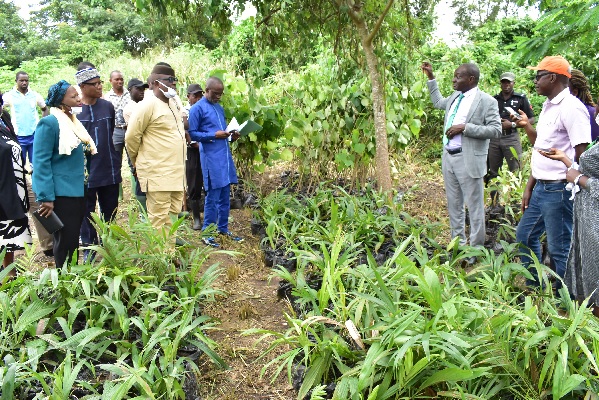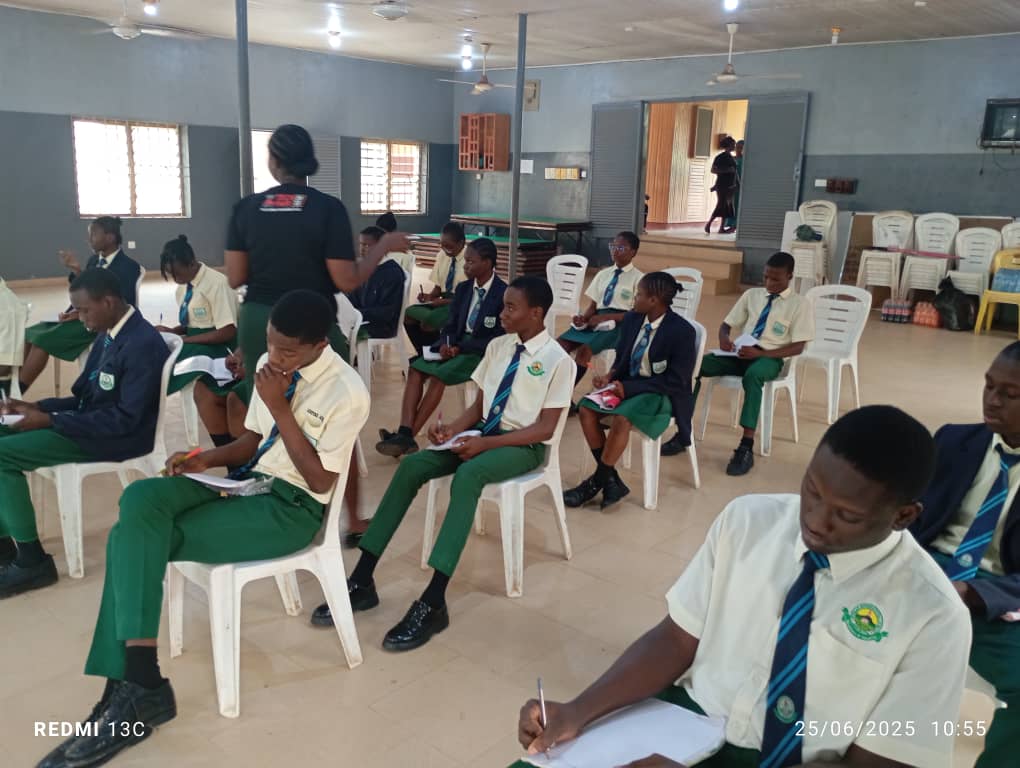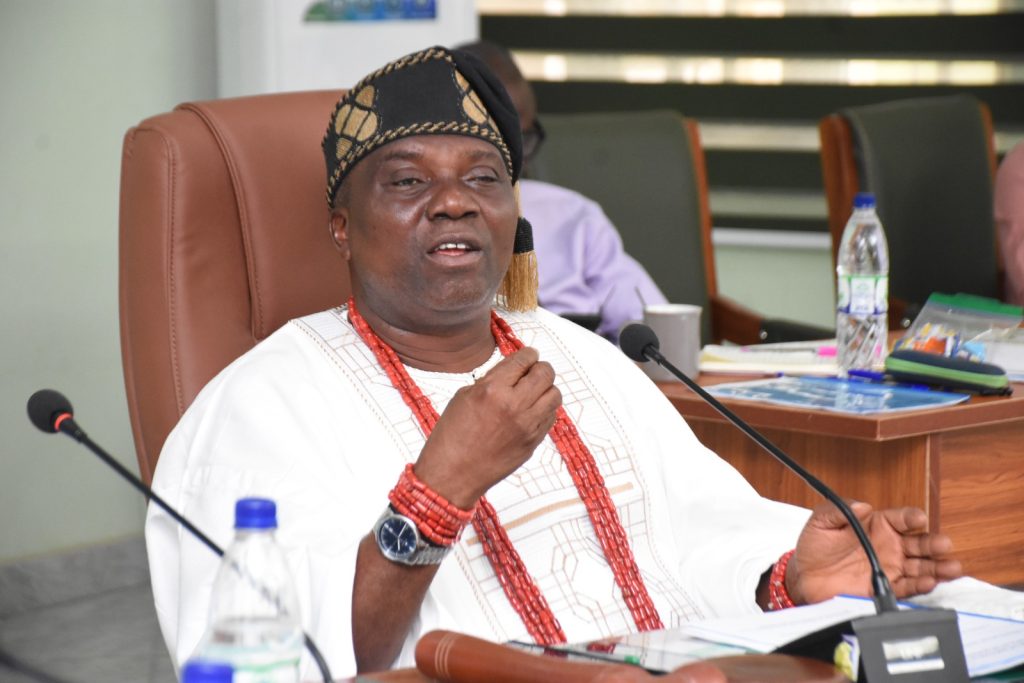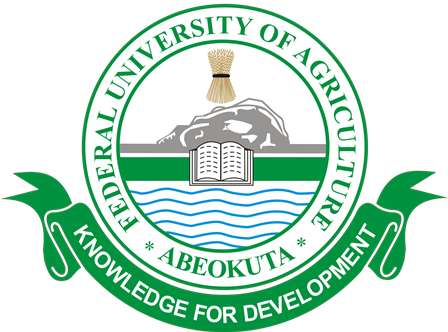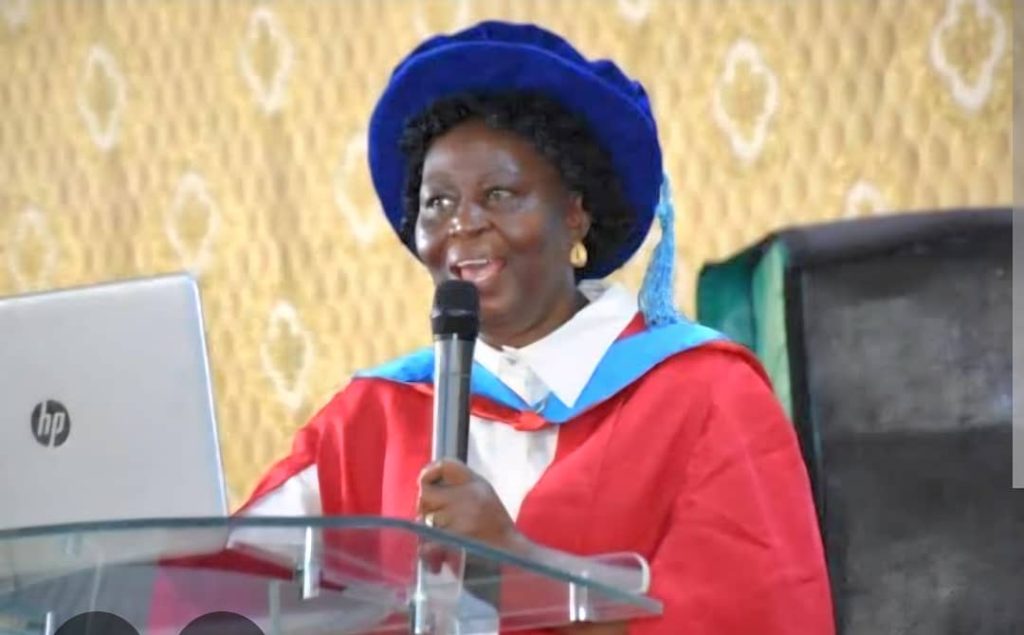Last Updated on October 5, 2020 by FUNAAB
An endowment has been added to the list of goodwill coming the way of the University with three special species of seedlings, namely: Tenera Oil Palm, Gmelina and Ekki by the renowned environmental activist and founder of Lufasi Nature Park, Mr. Desmond Majekodunmi. The Vice-Chancellor, Prof. Kolawole Salako has described the gesture as apt, particularly at this point in time when the world is advocating for conservation and restoration of forests to mitigate the challenges of climate change. According to the Vice-Chancellor, the endowment would combat the negative effects of deforestation, forest degradation and create multiple benefits for the ecosystems while also serving as a source of revenue for the University. He revealed that although the University has a variety of tree species and plantations across various locations and that the donation was well appreciated, assuring that the seedlings would be properly utilised.
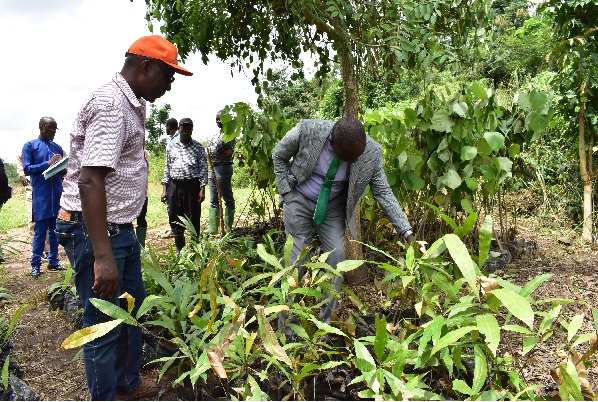
He encouraged members of the University community to maintain and maximise resources, noting that the endowment can be used to leverage on how to stop encroachment. According to him, “The lack of continuity is killing the University and people do not just care. We are not maximising our resources very well and we need to pay more attention to this as a University because it got to a point where people were selling off some of our Gmelina trees around Mawuko without our knowledge, but thanks to the vigilance of the security (personnel), who patrol there regularly, we were able to apprehend the culprit”, he said.
Corroborating the Vice-Chancellor, the Director, Directorate of University Farms (DUFARMS), Mr. Joseph Olobashola disclosed that Mr. Majekodunmi chose FUNAAB as one of the institutions to support with the tree species because of his concern about the way the environment was getting depleted. He added that Mr. Majekodunmi was greatly alarmed with the fact that some useful tree species were already going into extinction because of illegal felling hence, his support for aforestation of the environment and propagation of endangered species.
Describing the various tree species that were donated, the Director said the Tenera Oil Palm species was the most preferred oil palm used for commercial plantation in Nigeria. Gmelina is one of the soft woods used in agro forestry for the paper industry and timber industry. While Ekki is an indigenous tree species, which is commonly used for the construction of bridges, buildings, marine, and application flooring, among others. The Director noted that although oil palm was not new, the University is willing to learn from the donated Tenera species, which is the second generation of the crop. According to him, “Already, we have 70 acres of first generation Tenera species and that is where we get our oilpalm for our oil production. So an additional eight acres would help expand it. The good thing is that it is bringing another species of Tenera to look at and we might actually learn from it”. He further revealed that students would be carried along in this new development, stressing that the crops would be used for teaching, research and learning purposes for them to be able to benefit. According to him, “There is the teaching component for students to learn from. So, the availability of some of these things can also increase the scope of available plant species that we have on campus”. Mr. Desmond Majekodunmi is the son of late Chief (Dr.) Moses Majekodunmi, Nigeria’s First Republic Minister of Health.

